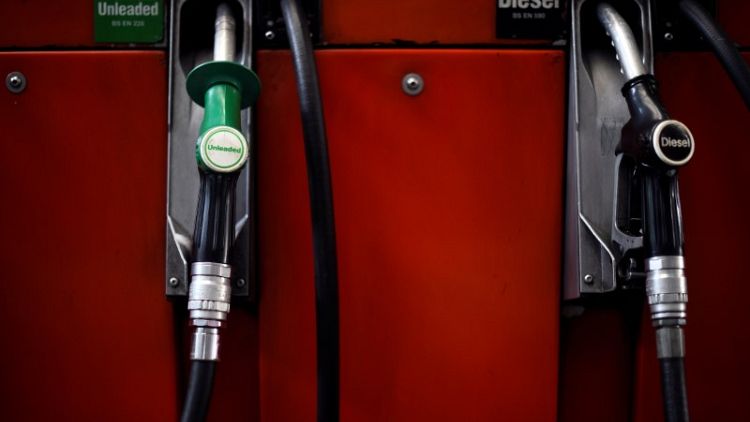By Andy Bruce and Jonathan Cable
LONDON (Reuters) - British inflation hit its lowest in nearly two years in December as fuel prices fell, leaving the Bank of England under no pressure to carry on raising interest rates as uncertainty over Brexit dominates the economic outlook.
Consumer prices rose at an annual rate of 2.1 percent in December, slowing from 2.3 percent in November, the Office for National Statistics said, as a Reuters poll of economists had predicted. The rise was the smallest since January 2017.
Although inflation remained just above the Bank's 2 percent target, it was likely to fall below that level soon and there was little immediate urgency for the BoE to move, economists said.
The central bank has sketched out a range of Brexit scenarios including a worst-case no-deal outcome in which sterling would plunge to parity against the dollar, inflation would exceed 6 percent and the economy contract by 8 percent.
On Tuesday, MPs voted against Prime Minister Theresa May's Brexit plans by a crushing margin. BoE Governor Mark Carney said on Wednesday that sterling's rise after the vote suggested investors felt the risk of a no-deal Brexit had diminished, or that the departure process would be extended.
May faces a vote of no confidence in her government moved by the opposition Labour Party on Wednesday that she is expected to win.
"Although we think that Brexit uncertainty will keep the Monetary Policy Committee on hold for the time being, we doubt the Bank will miss out on the global tightening cycle altogether," Ruth Gregory, senior UK economist at Capital Economics, said.
The central bank has raised interest rates twice since late 2017 and has said it plans to carry on increasing borrowing costs gradually.
Wednesday's inflation figures could be a relief for British consumers who have been pressured by inflation since the Brexit referendum in June 2016 which triggered a slump in sterling of more than 10 percent against the dollar and euro.
Inflation peaked at a five-year high of 3.1 percent in November 2017. It has fallen since then and wages have grown at their fastest in a decade.
But businesses have reported a downturn in consumer spending in recent months, and surveys show households are worried about the outlook for 2019.
Sterling and UK government bonds were little moved by Wednesday's data which suggested less short-term pressure in the pipeline for consumer prices, with factory input costs rising at the weakest rate since June 2016.
The ONS also said house prices in November rose by an annual 2.8 percent nationwide compared with 2.7 percent in October. Prices in London alone fell 0.7 percent, the fifth month of decline -- a run last seen during the financial crisis.
(Writing by Andy Bruce; editing by John Stonestreet)



